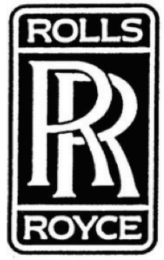IP often receives little or no attention among the extensive and time sensitive legal, financial and business aspects of corporate transactions. More often than not, IP experts are provided with a list of trade marks, patents and designs at the last minute and are asked to determine if there are any IP issues that cannot be resolved or that significantly reduce the value of the IP. This can be an extremely costly mistake, as illustrated by the well-known brands Volkswagen, Apple and Clorox Company.
What is IP due diligence?
IP due diligence is a review of the IP owned and used by an organisation, in order to appraise value and IP-related risks. It is usually triggered by corporate transactions, such as:
- Mergers or acquisitions.
- Internal restructuring.
- Initial Public Offerings (IPOs).
- Joint ventures.
- Capital raising and investment.
- Significant licensing arrangements.
IP due diligence seeks to answer three main questionswhich impact on value and risk management:
- Am I getting everything I need to run the business the way I want to?
- Am I getting everything I think I am paying for?
- Am I going to run into any problems later which devalue my purchase, investment or licence?
The costly mistakes of Volkswagen, Clorox Company and Apple, Inc.
Volkswagen learnt the importance of IP due diligence the hard way, in its multi-million dollar acquisition of the Rolls-Royce company in 1998. Volkswagen purchased the plant, machinery, dies and automobile designs from Rolls-Royce. After the deal was completed, Volkswagen learned that the Rolls-Royce trade mark was owned by a related entity, Rolls-Royce Aircraft, and the purchased Rolls-Royce company only held a non-transferrable licence to use. The upshot was that Volkswagen could build a car that was to all intents and purposes a Rolls-Royce, but they could not brand it accordingly. The trade mark rights were then purchased by BMW at a significantly cheaper price than what Volkswagen paid. BMW came out smiling, while Volkswagen was unable to use the Rolls Royce brand it thought it had purchased.

It is also essential to confirm that there are no limitations on use of IP rights which will impact the purchaser’s intentions for the asset or the business. In the 1990s, the Clorox Company purchased the PINESOL trade marks from American Cyanamid, which it intended to use in relation to a wide range of cleaning products. However, the trade marks were purchased subject to a trade mark settlement agreement entered into some 30 years earlier with the owner of the LYSOL trade mark. The agreement restricted the type of cleaning products that could be sold. Clorox subsequently brought antitrust litigation in the United States aimed at voiding the terms of the settlement agreement, and lost that action at great cost. Clorox could continue the existing business, but could not expand in the way it had anticipated, and the value of the acquisition was diminished significantly.

Where a transaction involves cross-border issues, IP due diligence must be conducted with particular care and expertise, as IP laws differ from country to country. Apple, Inc. learned this in 2012 after it thought that it had purchased the iPad trade mark from Proview, a Chinese monitor manufacturer. Proview claimed that the division of Proview that Apple had dealt with did not have the rights to assign trade marks in China and the purported assignment was invalid. The Chinese court found in Proview’s favour and issued an injunction forcing resellers in China to remove iPads from their stores. Apple ultimately settled with Proview for USD60 million.
Process of IP due diligence
The IP due diligence process itself takes into account things such as whether the IP is driving the deal, the business’ plans for the IP in the future, the objectives of the parties, and the value of the deal. Depending on the agreed scope, the investigations may look at a combination of the following:
- Identification of IP.
- Ownership, including a review of historic chain of title to ensure that the business has the rights it purports to have and whether they are encumbered in any way.
- Review of IP-related agreements, such as in relation to employment, consultancy, funding, collaboration, and settlements.
- Review of in-bound and out-bound licensing agreements.
- Any third party challenges to the IP.
- Freedom to operate searching.
- Scope, validity and enforceability analysis.
It’s important to note that an organisation does not need to wait for a trigger event before conducting IP due diligence. Due diligence can form part of a broader IP audit process to firm up IP assets and to develop an efficient IP management process. IP-savvy organisations conduct regular audits without the stress of time sensitive transactions, to ensure any defects or gaps can be filled, assets are being used to their best potential to build value and revenue, and the organisation is best placed when transactions do arise.
The POF Group is uniquely situated to assist in all aspects of IP due diligence through its lawyers, Phillips Ormonde Fitzpatrick Lawyers, patent and trade mark attorneys at Phillips Ormonde Fitzpatrick, and our specialised search and investigations company, IP Organisers.

